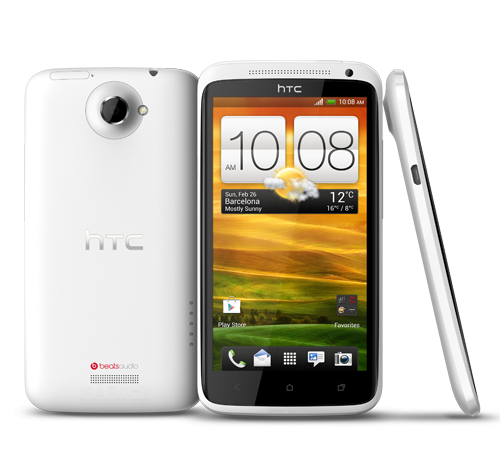HTC may not be loudly profitable, but it is still quietly brilliant


HTC has not had the best financial news lately, but as I thought about them this past weekend I came to the realization that we probably should not be comparing their financial situation with technology giants like Apple and Samsung. Apple makes desktops, laptops, digital media players, phones, and an entire operating system while Samsung makes phones, refrigerators, washing machines, TVs, laptops, and one of their subsidiaries is even the 2nd largest shipbuilder in the world. HTC makes Android and Windows Phone devices. HTC has something like 13,000 employees, compared to Apple's 60,000+ and Samsung with more than 345,000. If you look at financials, even just comparing Samsung Electronics and not all the Samsung parts, then you will see HTC isn't even in the same ballpark as these two major players.
Given this perspective and then looking at HTC's history we can see how they started in 1997 as an ODM of some of the BEST Pocket PC and Windows Mobile devices. Remember the ground-breaking Compaq iPaq 3600 back in 2000? That was made by HTC. How about the Palm Treo 650? Yep, that was HTC too. Then we see the T-Mobile G1, world's first Android phone, also made by HTC, followed by the first Nexus, the Nexus One. In the early days HTC made devices for others, including carriers, and earned a place as a carrier friendly company who worked to satisfy carrier needs while offering compelling products to the consumer.
Sometime in 2006, HTC started to sell phones under their own brand and even then it was a fairly quiet move into the marketplace. They didn't really promote the brand with outward advertisement until 2009. I understand HTC took a bold step in moving from ODM to OEM and their financials suffered during this transition. They made some excellent devices during this time with some amazing innovations and pushed Windows Mobile even further than Microsoft ever did while also launching Android smartphones. Look at the HTC HD2 and you can see that HTC did what they could to provide innovation with the operating system Microsoft provided.
They helped put Android on the radar with the T-Mobile G1 and have since provided solid devices that implemented their Sense UI. Some people dislike Sense, but as an avid Exchange user I prefer it over every other UI in large part because they offer the best Exchange experience of all OEMs. I also understand what HTC is trying to do with Sense and find it an attractive offering. Their new HTC One X has received the highest praise from nearly every reviewer and is arguably one of the best Android smartphones currently available.
I think one major reason that HTC hasn't blown the roof off with the HTC One X is their nature to please carriers ended up leading to the One X on AT&T, One S on T-Mobile, EVO 4G LTE on Sprint, and nothing at all on Verizon. I applaud their efforts to stop releasing a ton of devices with incremental updates and focus on high quality products, but am disappointed by carrier controls on the One X and One branding. In the meantime, Samsung was able to march in and get the Galaxy S III on all major US wireless carriers in the same form factor. I honestly don't think HTC can, or really wants to, go in and demand carriers take just a single device. There is the risk there that a carrier will just say forget it and not carry any HTC device. I think of HTC more as a specialist in the mobile space who creates unique devices and experiences for carriers and customers. Look at the recent Cushnie et Ochs edition of the One X that HTC created for New York Fashion Week, in a limited edition of just 150 devices, and you will see an example of the type of niche they can fill.
While recent financial reports show HTC revenue down, they are still working hard to secure a place in the smartphone market and are seeing positive signs in places like China and other markets. Carriers seem to like HTC and if they would give them a bit more flexibility in selling their brand they may both see more success. HTC stated they are "going big" with Windows Phone 8 and I look forward to seeing what they offer this year. There is an event in New York next week that might showcase both new Windows Phone and Android devices and I'll be keeping a close eye on the event.
Related CBSi coverage
- CNET: HTC: Here's how we're going to get back into the game
- HTC reports $804m revenue for August; still 'quietly sinking'
- HTC's quarterly profits plunge again, what can they do to turn things around?
- HTC CEO to staff: 'Kill bureaucracy'
- HTC One X is the best HTC device I have ever used (review & gallery)
- Enjoy your HTC One content on the big screen with the Media Link HD (review)
- Nokia poll finds consumers prefer keyboards on smartphones